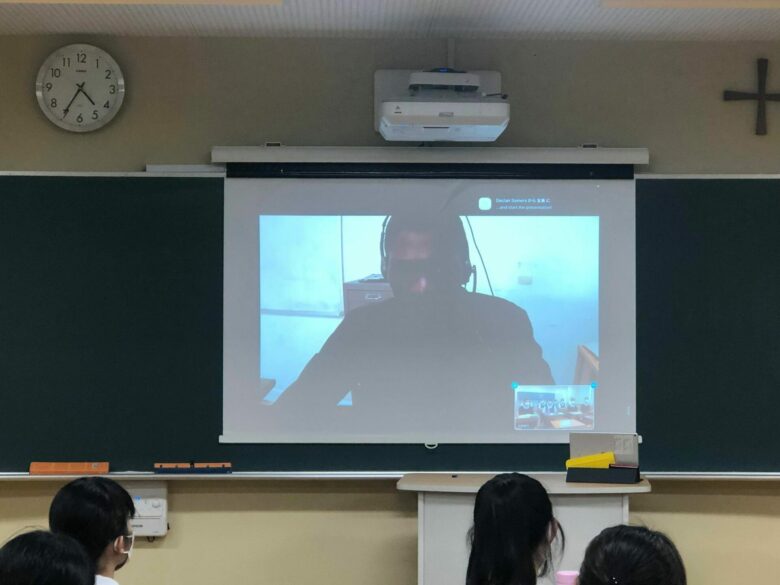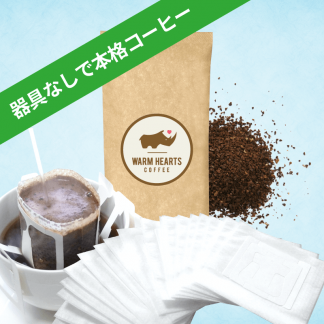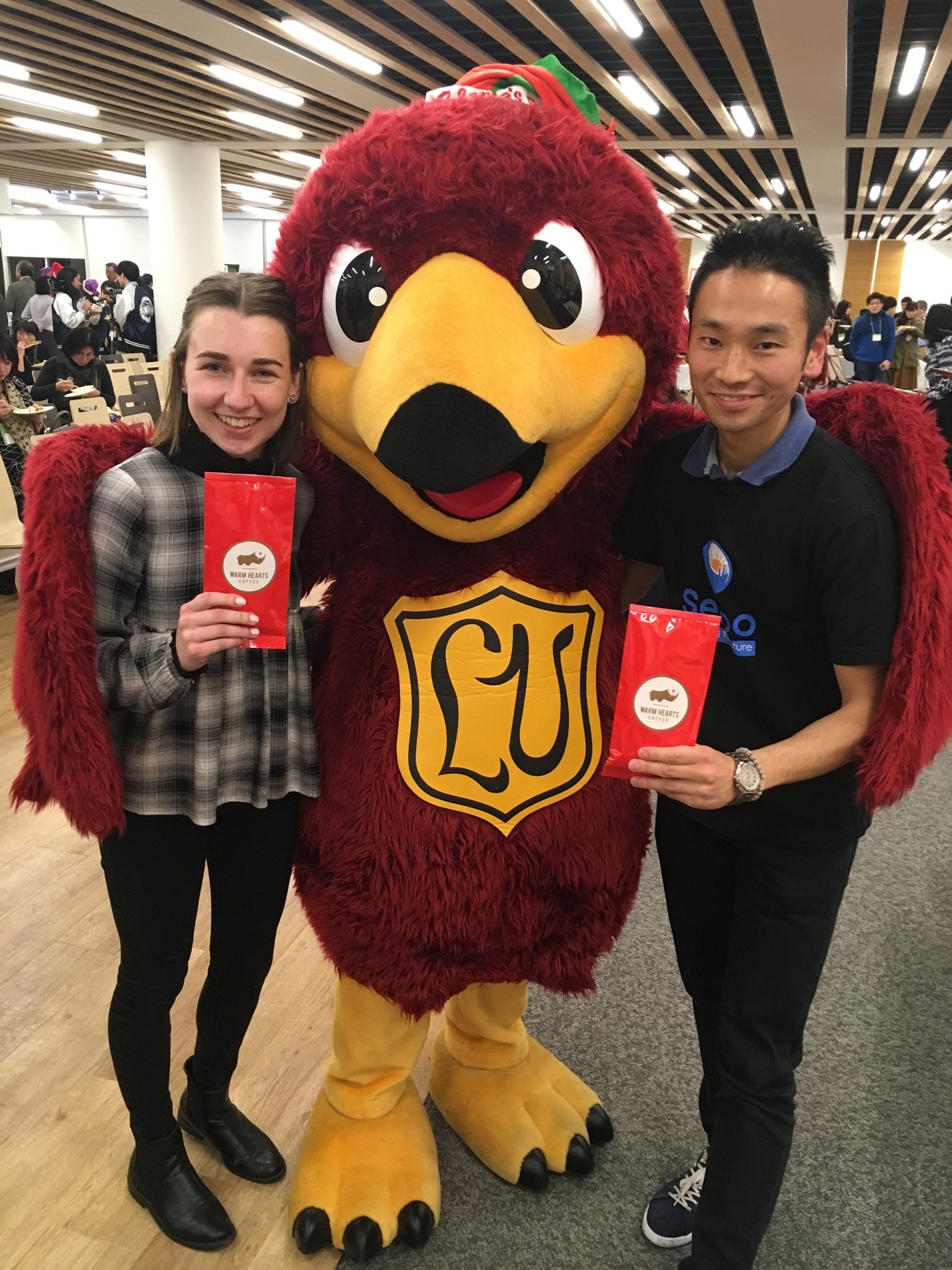
1. High School x Warm Hearts Coffee Club
1-1. ●Case Study 1:Salesio Gakuin Junior High and High School
1-2. ●Case Study 2:Hyuga Gakuin Junior High and High School
1-3. ●Case Study 3:Shizuoka Fubata Junior High and High School
1-4. ●Case Study 4:Miyazaki Gakuen Junior High and High School
1-5. ●Case Study 5:Sakurano Seibo High School
1-6. ●Case Study6:Nagano Seisen Women’s Junior High and High School
1-7. ●Case Study 7:Salesian International Junior High and High School
1-8. ●Case Study 8:Zushi Kaisei Junior High and High School
1-9. ●Case Study 9:St. Dominic Junior High and High School
1-10. ●Case Study 10:Shoei Women’s Junior High and High School
1-11. ●Case Study 11:Yokohama Futaba Junior High and High School
1-12. ●Case Study 12:Koka Gakuen Junior High and Senior High School
1-13. ●Case Study 13:Caritas Girls’ Junior High and Senior High School
1-14. ●Case Study 14:Hamamatsu Kaiseikan Junior High and High School
1-15. ●Case Study 15:St.Ursula Gakuin Eichi High School
1-16.●Case Study 16:Junshin Junior High School and Junshin Girls’ High School
1-17.●Case Study 17:Academy for the International Community in Japan
1-18.●Case Study 18:Kagoshima High School
1-19.●Case Study 19:Shokei Junior High and High School
1-20.●Case Study 20:KOEN Girls’ Junior and Senior High School
1-21.●Case Study 21:Fukuoka Futaba Junior and High School
1-22.●Case Study 22:Salesian Polytechnic
1-23.●Case Study 23:Hibarigakaoka Gakuen Junior and High School
1-24.●Case Study 24:Hikarigaoka Girls’ High School
1-25.●Case Study 25:Okinawa Prefectural Naha International Senior High School
1-26.●Case Study 26:Shizuoka Salesio Junior and Senior High School
1-27.●Case Study 27:Seiko Gakuin Junior and High School
1-28.●Case Study 28:Toyohashi Chuo High School
1-29.●Case Study 29:Hyogo Prefectural Ikawadani High School
1-30.●Case Study 30:Eisugakkan High School
1-31.●Case Study 31:Miyazaki Prefectural Miyazaki Minami High School
1-32.●Case Study 32:Tokushima Municipal High School
2. Universities × Warm Hearts Coffee Club
2-1. ●Case Study 1:Tokyo University of Foreign Studies
2-2. ●Case Study 2:Sophia University
2-3. ●Case Study 3:Rikkyo University
2-4. ●Case Study 4:Tsuda Outreach
2-5. ●Case Study 5:Niigata University
2-6. ●Case Study 6:Kanagawa University
2-7. ●Case Study 7:Seibi Gakuen College
2-8. ●Case Study 8:Seisen Jogakuin College
2-9. ●Case Study 9:Doshisha University
2-10. ●Case Study 10:Tsu City College
2-11. ●Case Study 11:University of Tsukuba
2-12. ●Case Study 12:Kanazawa Seiryo University
2-13. ●Case Study 13:Hiroshima University
2-14. ●Case Study 14:Osaka Jogakuin University
2-15. Applying Coffee as a Source of Learning
3. Would you be interested in hosting events like these at your school?”
3-1. ①Learn more about the unique social issues that Malawi faces, and how Seibo Japan and it’s partners are attempting to find solutions
3-2. ②Learn more about “Fair Trade”
3-3. ③Actively participate with and learn how NPOs operate
3-4. ④Learn directly from locals in Malawi, sharing their own experiences
High School x Warm Hearts Coffee Club
At each of the schools included in this article, Warm Hearts Coffee Club engaged in a form of inquiry-based learning. The hope being to not only provide information to the audience, but also allow them to engage with and ask questions concerning the material covered.
By allowing participants to engage with the material, many students were able to present what they learned in various ways. Some students prepared presentations concerning fair trade or Malawi, while others helped in selling coffee at events. Involving students in the actual act of charity helped to better engage them in the subject matter.
●Case Study 1:Salesio Junior and Senior High School
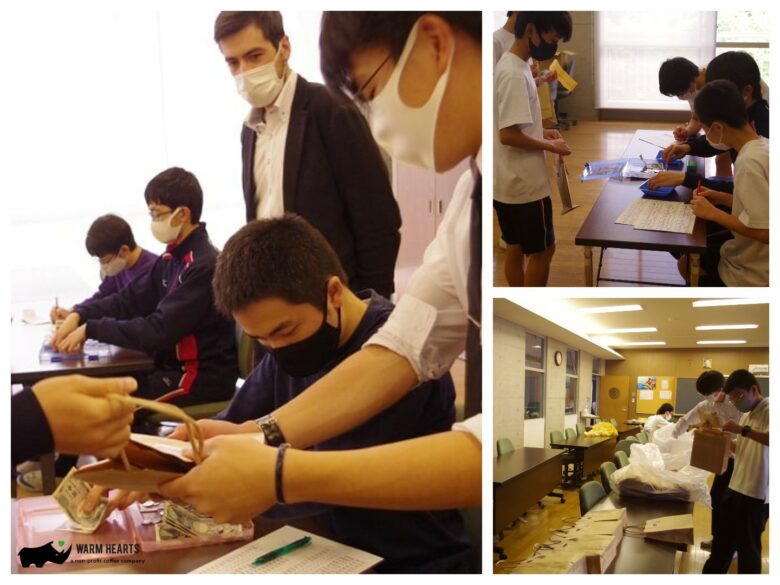 [coffee sales]
[coffee sales]
At Salesio High School, both junior and senior students joined us in a learning session where they were able to ask questions concerning our organization and Malawi. From there, the students held a sale at the school, selling both tea and coffee provided by Warm Hearts Coffee Club.
While normally Seibo Japan organizes just one event in collaboration with schools, the number of applicants interested in contributing exceeded expectations! Because of this the students helping to sell products were divided into two teams. Overall, after the work from both of these groups, just over 11,246 school lunches in Malawi were funded, a testament to the generosity and hard work of the community at Salesio High School!
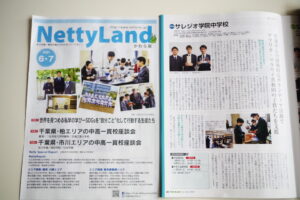 By organizing this event, Seibo Japan was happy to provide a real opportunity for students to volunteer in an international cause. In some of the school courses, like geography, students were able to learn about concepts like fair trade or international issues, so being able to take that coursework and apply it into a real situation was an enriching chance.
By organizing this event, Seibo Japan was happy to provide a real opportunity for students to volunteer in an international cause. In some of the school courses, like geography, students were able to learn about concepts like fair trade or international issues, so being able to take that coursework and apply it into a real situation was an enriching chance.
[volunteer learning program]
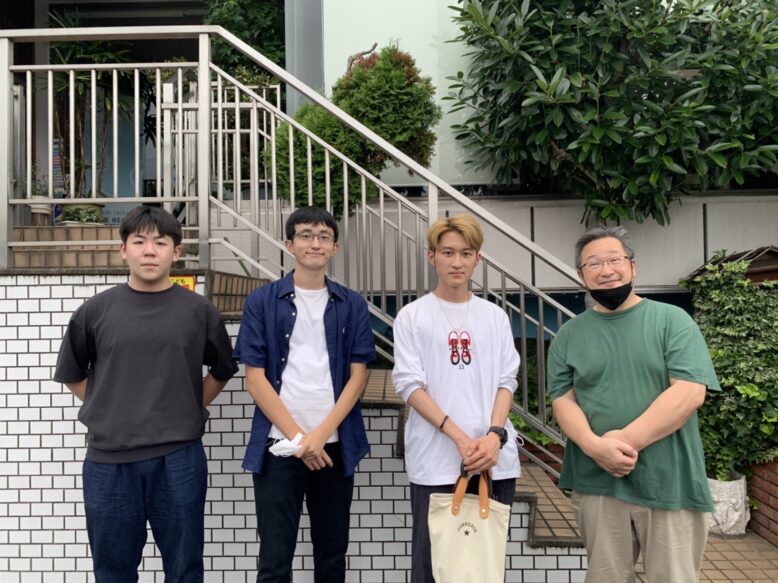
Along with the work done at the school, Seibo Japan also hosted a summer volunteer workshop for high school and graduate students. At this workshop, students collaborated in considering how they could best market and spread publicity concerning Warm Hearts Coffee Club. At this workshop they were also introduced to /span>Mobell the larger telecommunication company that helps to fund Seibo Japan directly. Volunteer work like this that students engaged in outside of the school allowed them to develop a further understanding considering how international trade actually works, such as how Seibo Japan and its sponsors facilitate the transportation of products from Malawi to Japan.
Involving students directly in this process helped to connect them to the larger international community. Even though their work is only done in the summer, they were still able to make a positive impact on both Seibo Japan’s domestic operations and the communities that we source from in Malawi.
If you are interested about volunteer activities, please find the details fromhereand we hope you enjoy it!
In the workshop we have introduced in this article, there were students who participated in Mobell Internship Course and also got involved in our activities. Through this online course provided by Mobell, students were able to get a more in-depth, guided look into different facets of charity and social enterprise.
Mobell Online Internship Coursehttps://www.mobell.com/jp/course/
●Case Study 2:Hyuga Gakuin Junior High and High School
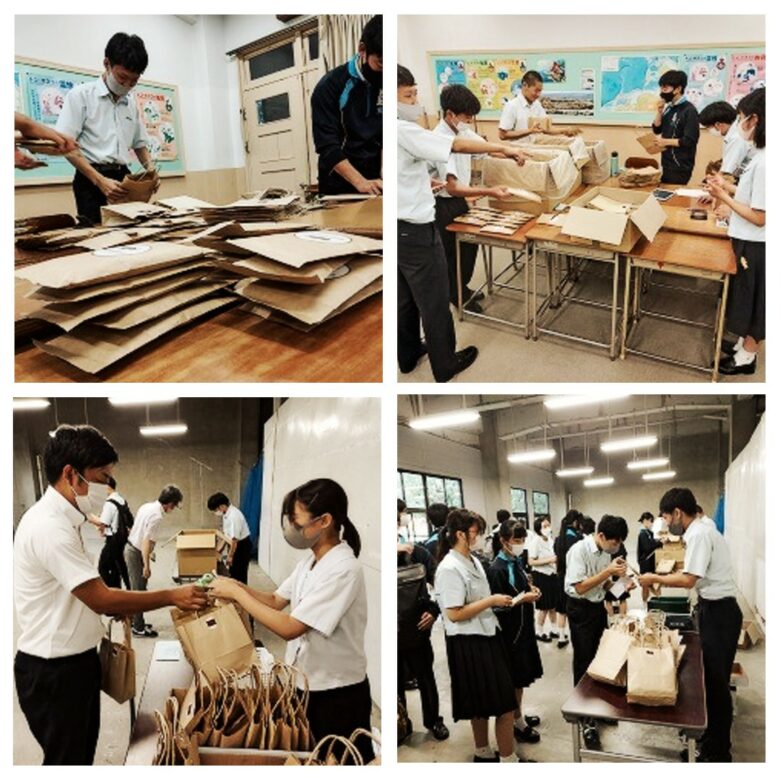
At Hyuga High School, Seibo Japan helped in the organization of “Your Bible Project” a sales project focused on fair trade coffee.
To start, the students considered the question: “What is fair trade coffee?”. With that as the basis, they moved forward to finding information online concerning social issues in Malawi, and considered how to best market the fair trade coffee provided by Warm Hearts Coffee Club.
By taking the background information they gathered on their own, students then put together a short video with the aim of educating a class at the school about the communities that grow coffee in Malawi. Along with a presentation to better articulate their findings, this sort of hands-on approach allowed students to better acquaint themselves with the act of fair trade and how coffee from Malawi is shipped to Japan.
Overall, over 130 students at the academy were able to learn about Malawi through videos or short presentations, leading to donations of almost 18,000 school meals in Malawi. Reflecting on the collaboration we were happy to see so many students take the initiative and figure out how they can individually learn more and share this information with those at their school. To have a young group so invested in international issues is a very encouraging sight for our organization!
“The Result of the Fair Trade Coffee Sale”
http://www.hyugagakuin.ac.jp/news/e/global/2021/07/23/002199.html
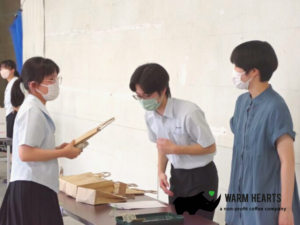
2021年12月、August 2022 Events where students could take their knowledge and organize sales events were held both in December 2021 and August 2022, where an overall 39,500 meals were donated to communities in Malawi. Throughout the whole process, the volunteer students were actively invested in learning more about Malawi and how they could best capture the picture of coffee production in the country in their presentations or workshops. Looking towards the future, we hope to facilitate an online exchange between students and our contacts in Malawi, providing them the opportunity to exchange cultures and sales ideas. By organizing this dialogue between two groups separated by hundreds of thousands of miles, Seibo Japan is honored to serve as the bridge for international communication and teamwork!
●Case Study 3:Shizuoka Futaba Junior High and High School
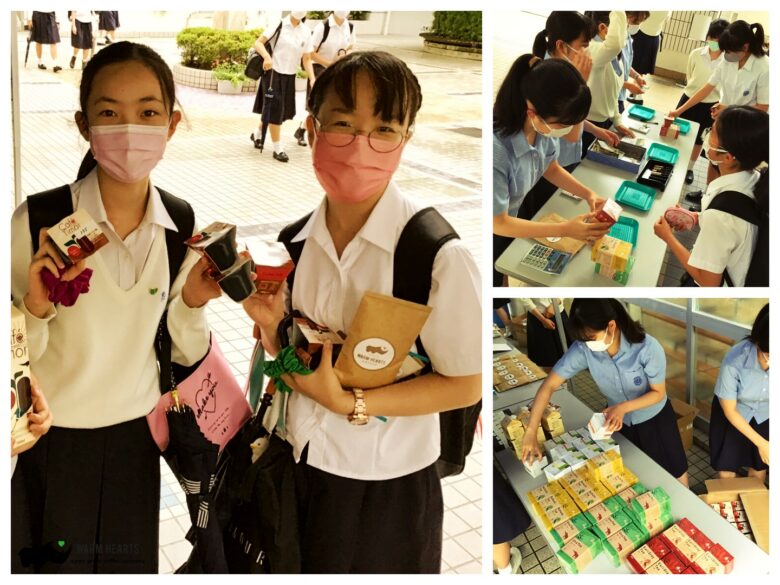 At Shizuoka Futaba Academy, we held three guided lectures: “Malawi and the Production of Coffee”, “Fair Trade in International Business”, and “How Sales Are Donated”
At Shizuoka Futaba Academy, we held three guided lectures: “Malawi and the Production of Coffee”, “Fair Trade in International Business”, and “How Sales Are Donated”
After these lectures, Seibo Japan participated in the “Futaba Fair Trade Day” an event held by a volunteer group on campus.「At “Futaba Fair Trade Day 」they sold Malawian coffee. Foster Friend, the group responsible for organizing the event, wanted to invite organizations or businesses that engage in fair trade to the school and educate students about their products or the countries that they came from. At this event Seibo Japan was delighted to garner funds for almost 3,300 school lunches in Malawi, a resounding success that would not have been possible without the effort of volunteers at Shizuoka Futaba Academy.
Beyond the lectures and this sales event, we also held a class specifically for the students taking internationally oriented courses, hoping to educate them on our own business operations and how we engage in fair trade. For students that in the future have an interest in engaging in international avenues or business, we were happy to provide our own product as examples of how a non-profit engages in healthy business practice.
December 2021, July 2022, they also held an event and donated 38,300 x school meals for Malawi by selling coffee. They do not help us not only for school meals but also for rebuilding a nursery school、holding a music event and so on.
●Case Study 4:Miyazaki Gakuen Junior high and High School
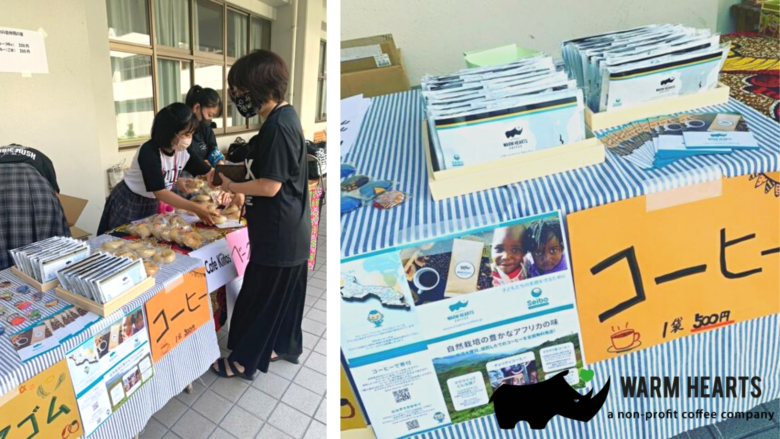
In September 2021, Seibo Japan worked with students from Miyazaki Academy in the sale of Malawian coffee.
After the sale event, we invited students to participate in an online voice call where they could learn more about Malawi and what life is like in the country. We were happy to see many students during the session actively engaged, asking many questions concerning how they could best support locals besides the sale of coffee or tea products. To that end, we introduced them to “Cycle of Good”, a charity that Seibo Japan was collaborating with in regards specifically to Malawi.
Along with the sale of coffee, we also offered custom made tote bags from Malawi to any students interested. The tote bags served as another avenue students could take in supporting communities in Malawi besides buying or distributing coffee, an artistic product that students can keep to represent Malawian culture. We are happy to provide both guided lectures where we teach students about Malawi and also real, tangible products from the country to better connect them to the cause!
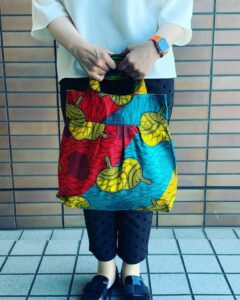
●Case Study 5:Sakurano Seibo High School
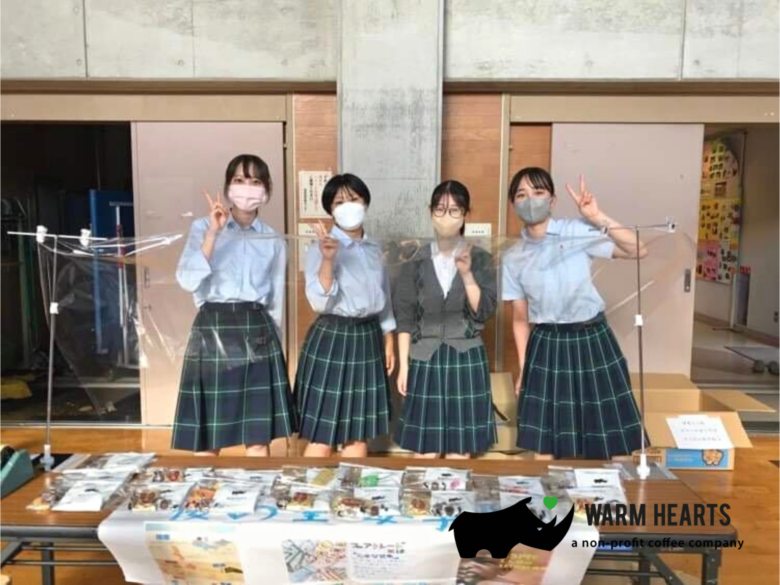
Sakurano Seibo High School has an students group to have their international work with some organizations (called Inter Act) and they sell our coffee and work with a small cafe for children with our charity coffee. . It was fantastic to see the students take initiative and expand their project outside of the school, reaching out to their local community in the process.
As of now, most of Seibo Japan’s collaborations begin with and are organized throughout with close contact with school faculty. That being said, the student-led work engaged at Sakura no Seibo High School was unlike anything we or the school had seen before. We were extremely happy with the result, and hope that moving forward we can help to invigorate more passionate students!
●Case Study 6:Nagano Seisen Women’s High School
In 2021, we were able to host two voice calls with our contacts in Malawi at Nagano Seisen Girl’s High School. At the first online meeting, the students were able to learn about what life is like in Malawi currently, and how Seibo Japan was founded in close partnership with organizations already existing in the country. Throughout this meeting and the second, the actual process that leads to the production of coffee was presented to students, allowing them to get a better picture of how local agriculture in the country leads to products that are shipped across the world to Japan. By participating in these online sessions, we believe the students were able to learn more about both Malawi but also the business and movement of coffee that Seibo Japan and its partners are engaged in.
About the details of their lesson,please find it fromhere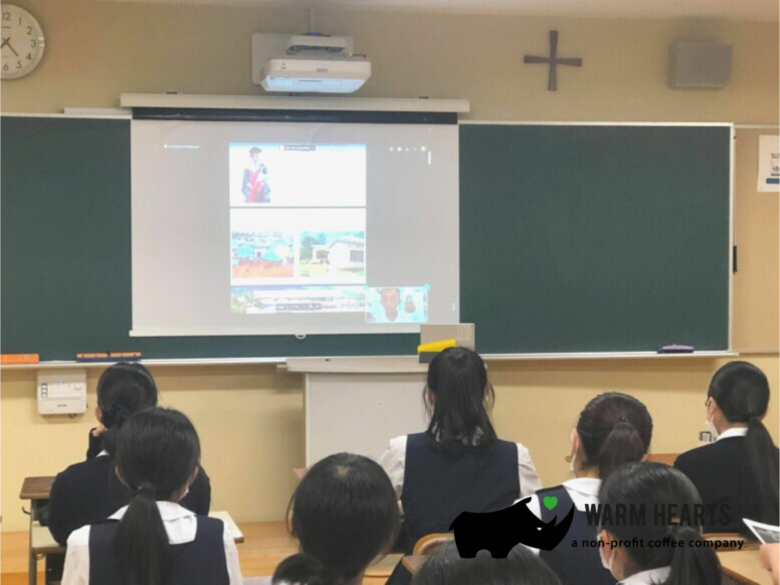 .
.
After the online sessions, students engaged in two different activities. The first was the distribution of Malawian coffee to other students and faculty at the school, and the second was an online interactive course provided by Mobell. Being the company that supports the activities held by Seibo Japan, Mobell offers an online course that allows students to collaborate with each other and learn more about the act of charity in relation to international business.
Similar to other school collaborations, we worked with students to develop a unique design that would be applied to the coffee drip packs sold at the school’s cultural festival. With the design shown in the picture below, we were happy to involve students in the process!
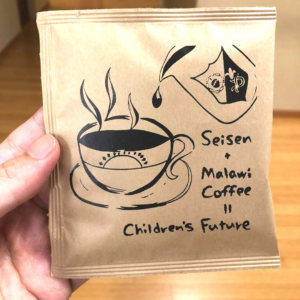
●Case Study 7:Salesian International Junior High and High School
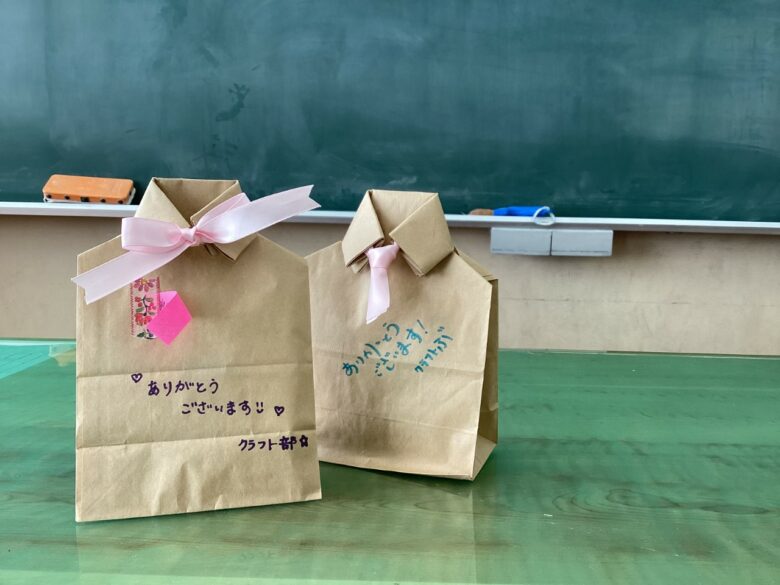
At Salesian International High School, Seibo Japan was given the unique chance to work with the crafts club, helping to make cute individual bags for the product being advertised on campus. While Seibo Japan often collaborates with and incorporates the designs made by students into the drip bags being sold, the event held at this school was special in how much added decoration the crafts club was invested in bringing to life. We hope that in the future Seibo Japan is able to facilitate more activities like this from individual clubs!
●Case Study 8:Zushi Kaisen High School
At Zushi Kaisei High School, Seibo Japan was successful in organizing the sales of more coffee drip packs in collaboration with students. The school has cultivated a unique spirit, one that encourages students to engage in hands-on activities and opportunities outside of the classroom. We were very happy to work with such an energetic group!
●Case Study 9:St. Dominic Junior High and High School
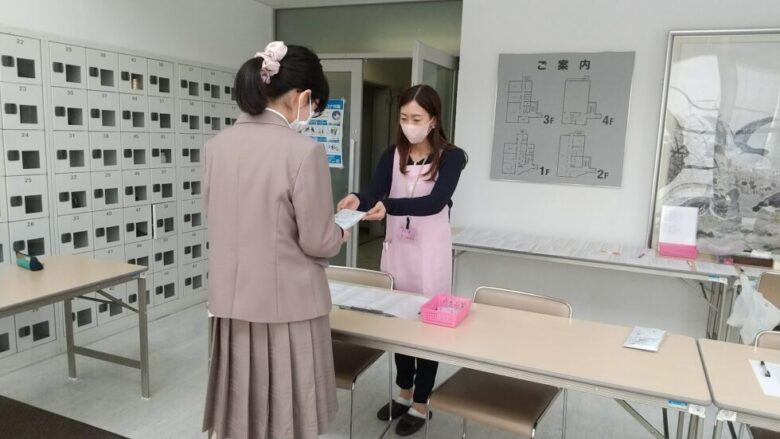
St. Dominic High School, a private school in Setagaya, already holds a number of unique workshops for students to engage with their education in a more hands-on manner. Per the suggestion of a student, Seibo Japan joined in a workshop by providing coffee from our brand, Warm Hearts Coffee Club.
At the event, our coffee was used as a raffle prize, given out to guests who participated in the event!
The photo provided is a picture of one of the drip packs that were given out at this event. The bag was designed with both the school’s name and emblem but also a unique drawing provided by a student.

●Case Study 10:Shoei Women’s Junior High and High School
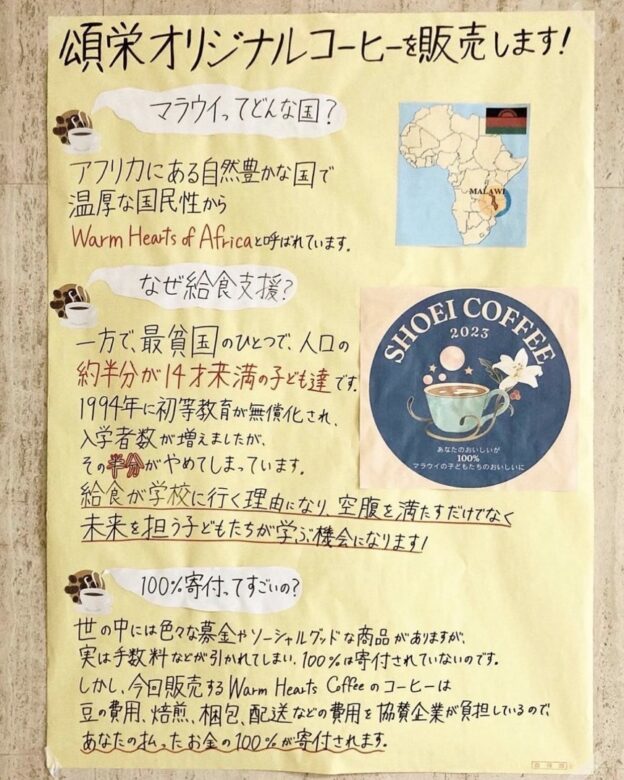
With coffee provided by Seibo Japan, students from Shoei Girl’s High School sold coffee to other students and faculty. Following the event I was given a small comment from one of the students participating in the event:
“At our school, the student council led efforts to sell products provided by Seibo Japan. Along with garnering funds from guests, we also aimed to better educate and spread information regarding the situation in Malawi and how people can help. By the end of the event we were able to fund the equivalent of 13,000 school lunches, a number far exceeding even our wildest expectations. Moving forward, I hope to use this experience as a stepping stone towards more activities based on service!”

●Case Study 11:Yokohama Futaba Junior High and High School
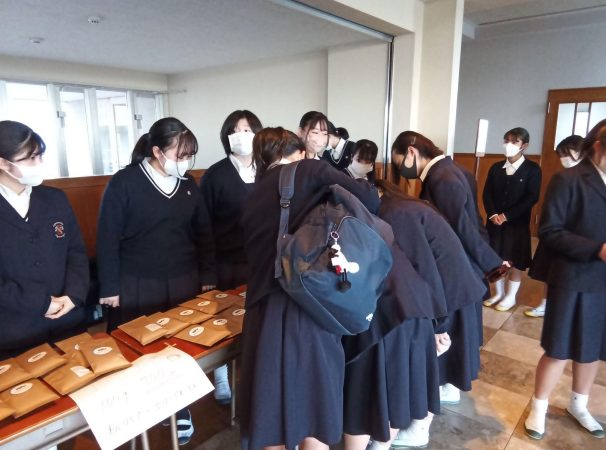
At Yokohama Futaba High School there is an interesting group called THE EYES, a student group focused primarily on service for those who are visually impaired. We were honored to organize a small workshop with the group at their school, focused on spreading awareness of and support for hot school lunches in Malawi.
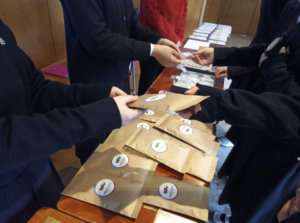




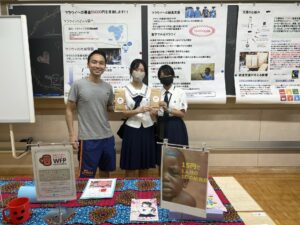
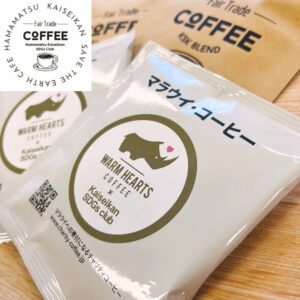

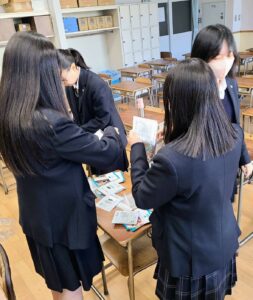
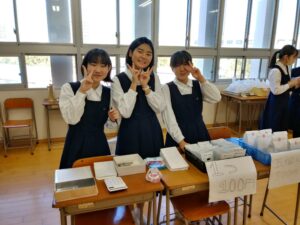
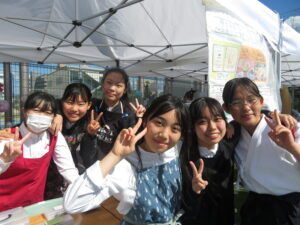
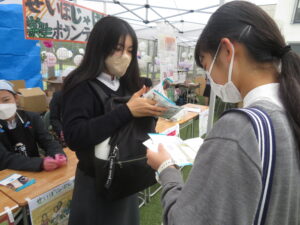
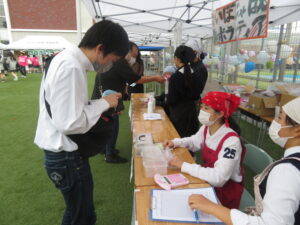
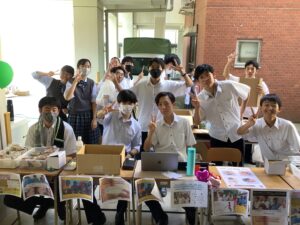
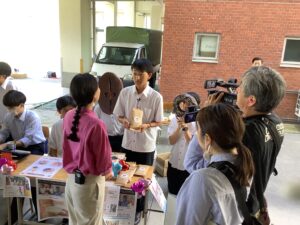
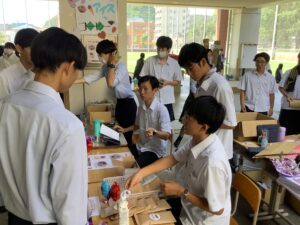

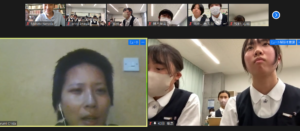
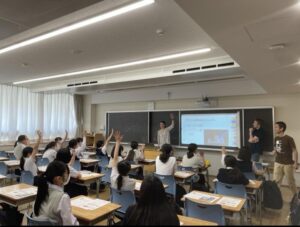 At KOEN Girls’ Junior and Senior High School, they started a special course titled “Let’s Participate in the Activities of International NPO Seibo!” from the third semester of the 2022 school year. During a social gathering, they sold original drip packs of coffee and other items.
At KOEN Girls’ Junior and Senior High School, they started a special course titled “Let’s Participate in the Activities of International NPO Seibo!” from the third semester of the 2022 school year. During a social gathering, they sold original drip packs of coffee and other items.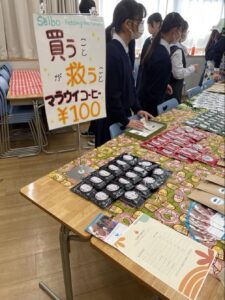
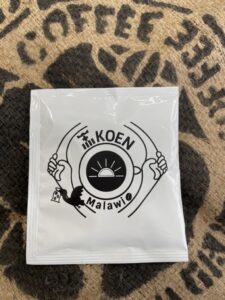
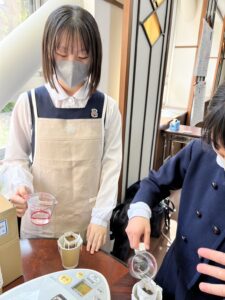
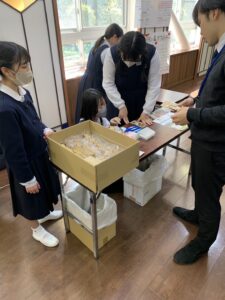
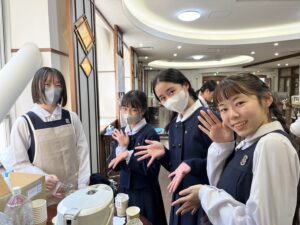
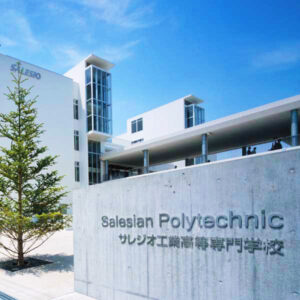
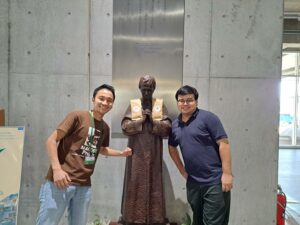
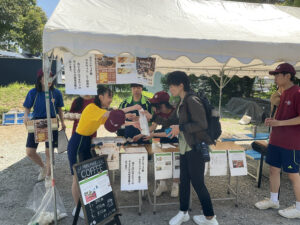
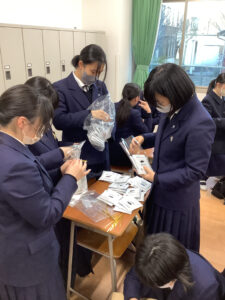
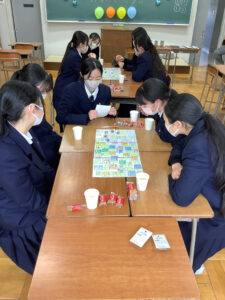
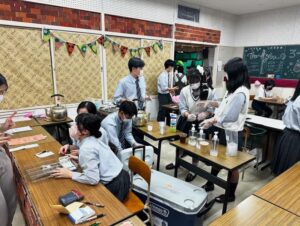
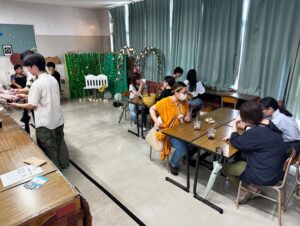
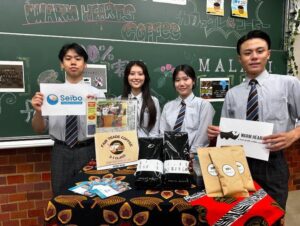
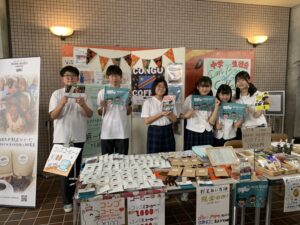
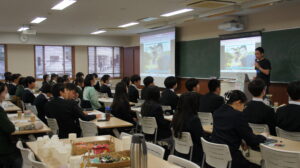
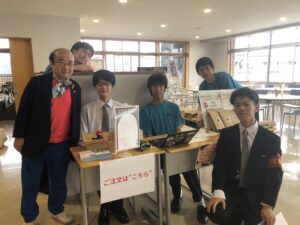
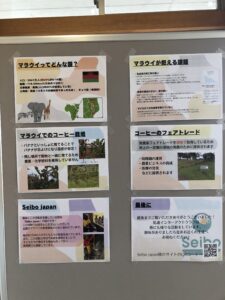
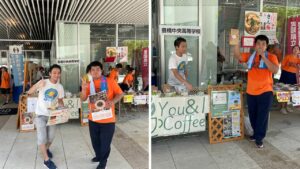
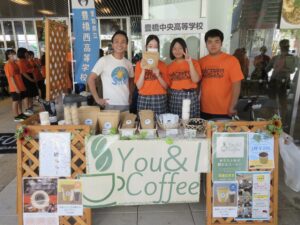
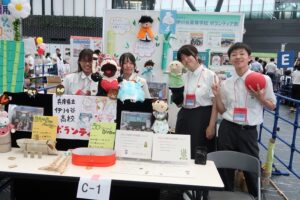
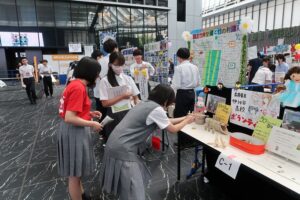
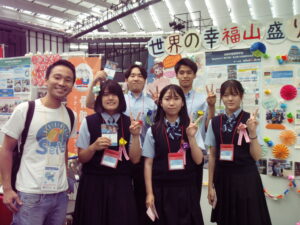
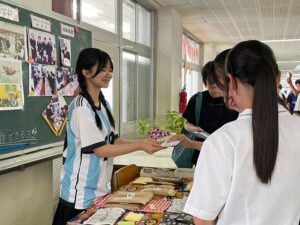
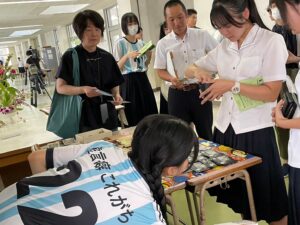
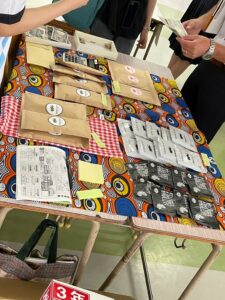
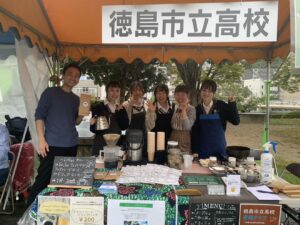
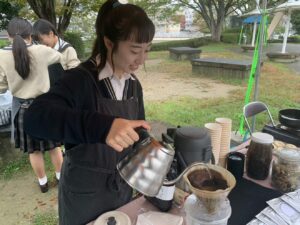
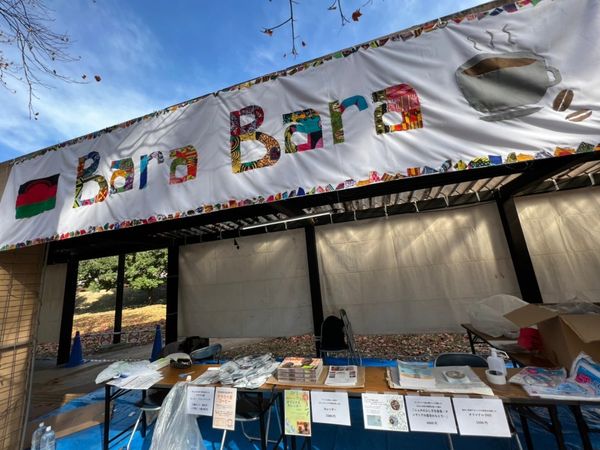
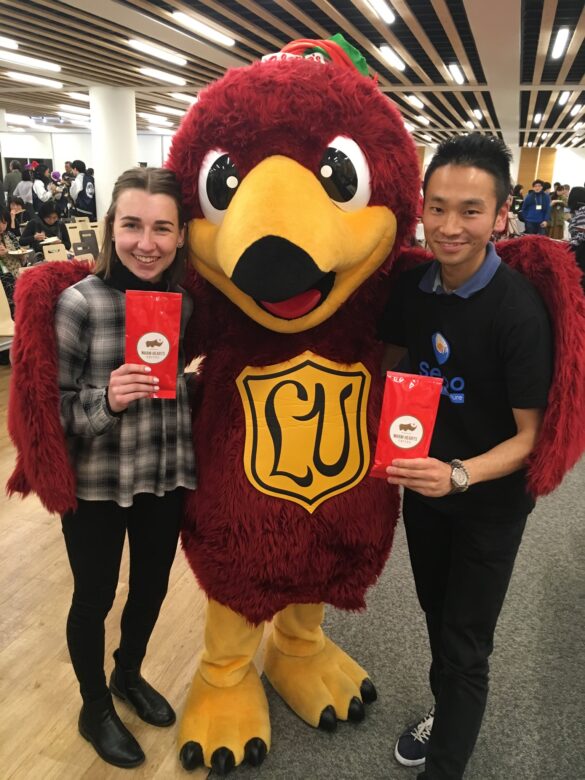
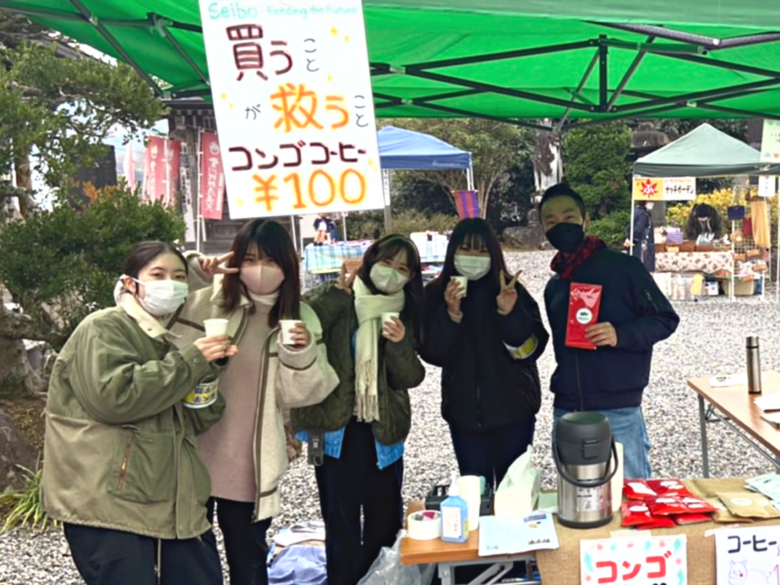
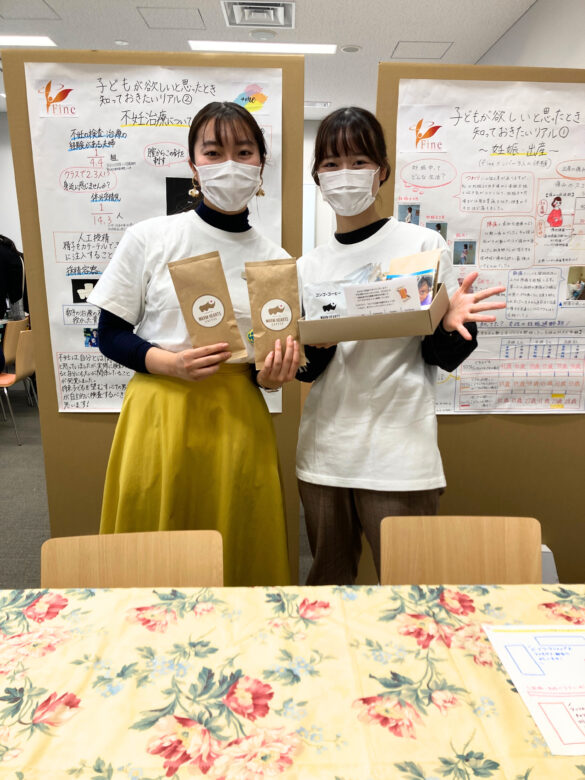
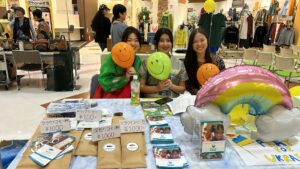
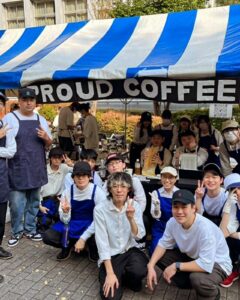 The members of the Kanagawa University Coffee Club used coffee at the school festival and got involved in supporting school meals in Malawi! By treating it as specialty coffee and promoting it within the university club, we believe it has helped to spread the goodness of Malawi and the charity activities further. Thank you very much for the opportunity to share the story of the coffee!
The members of the Kanagawa University Coffee Club used coffee at the school festival and got involved in supporting school meals in Malawi! By treating it as specialty coffee and promoting it within the university club, we believe it has helped to spread the goodness of Malawi and the charity activities further. Thank you very much for the opportunity to share the story of the coffee!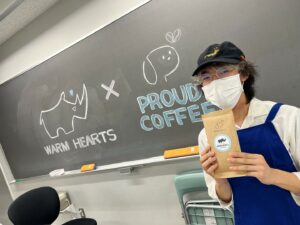
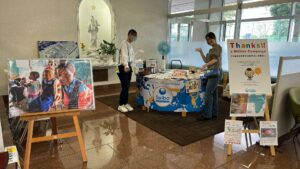
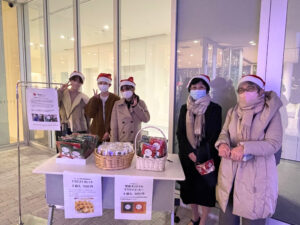
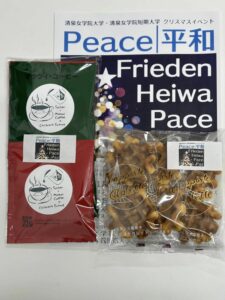
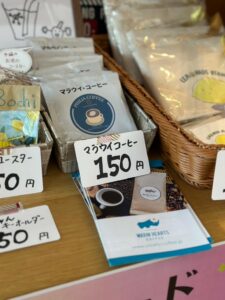
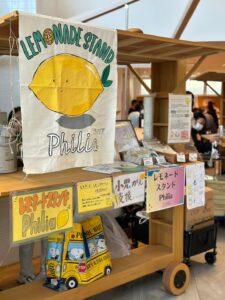

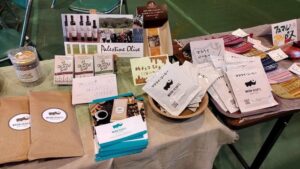
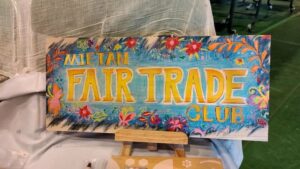
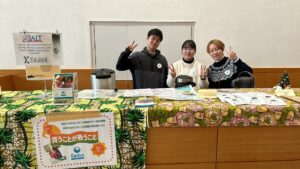
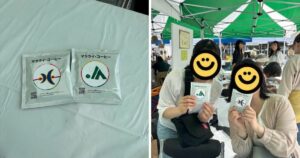
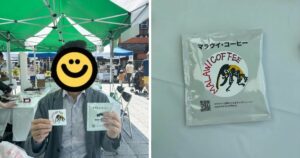
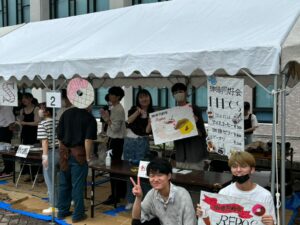
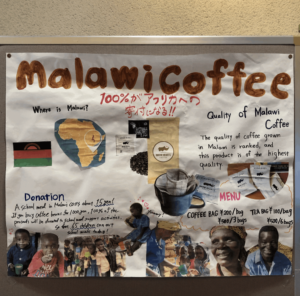
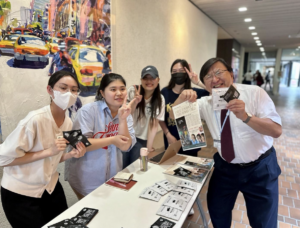
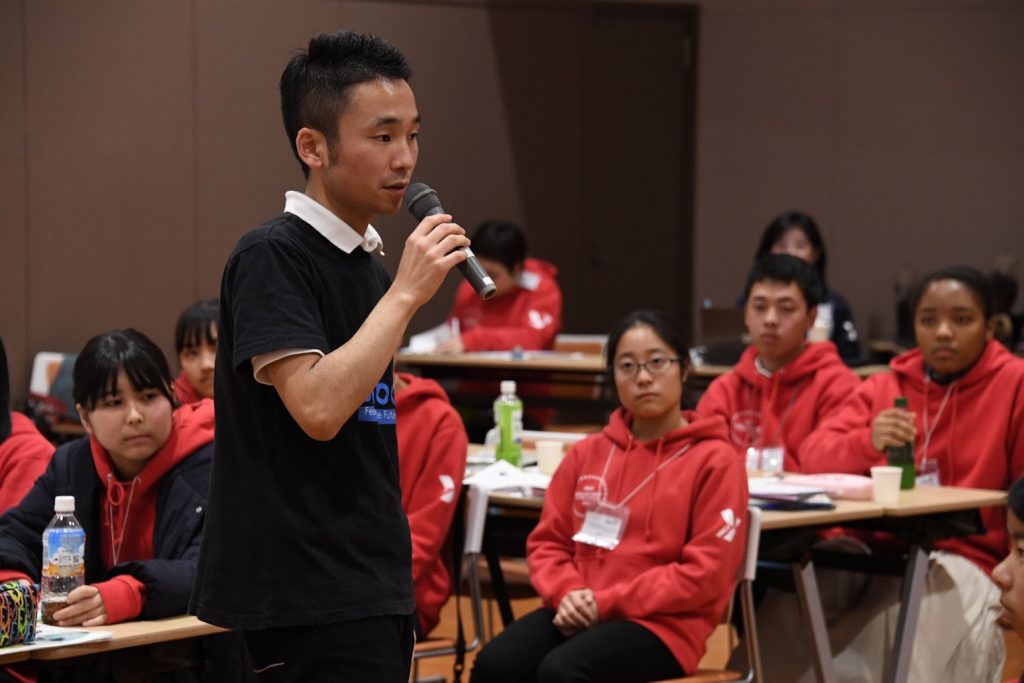 NPO
NPO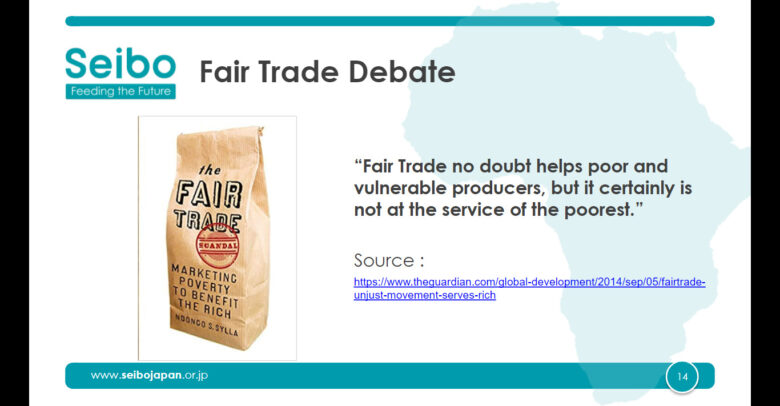
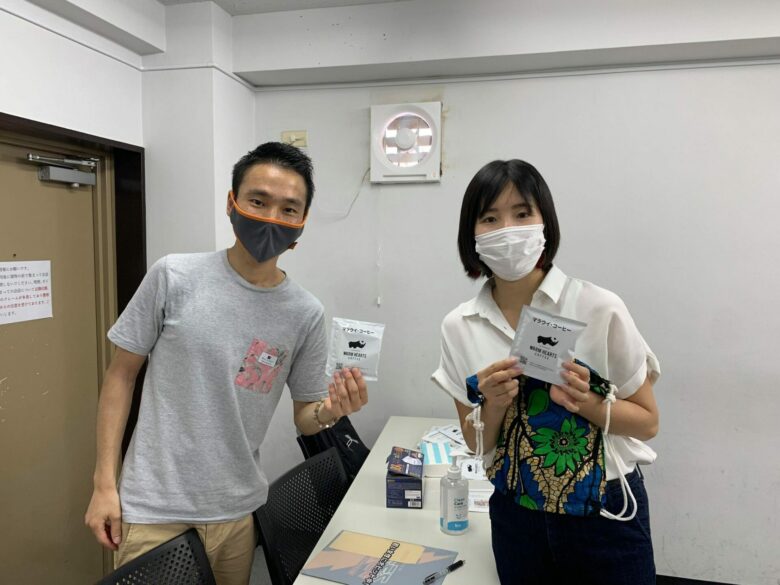 By involving students in the actual events held by Seibo Japan, the volunteers are given a real world opportunity to engage with an NPO through selling fair trade coffee or even helping to plan out sales. Through this involvement, this allows students across Japan to contribute to the larger international community.
By involving students in the actual events held by Seibo Japan, the volunteers are given a real world opportunity to engage with an NPO through selling fair trade coffee or even helping to plan out sales. Through this involvement, this allows students across Japan to contribute to the larger international community.